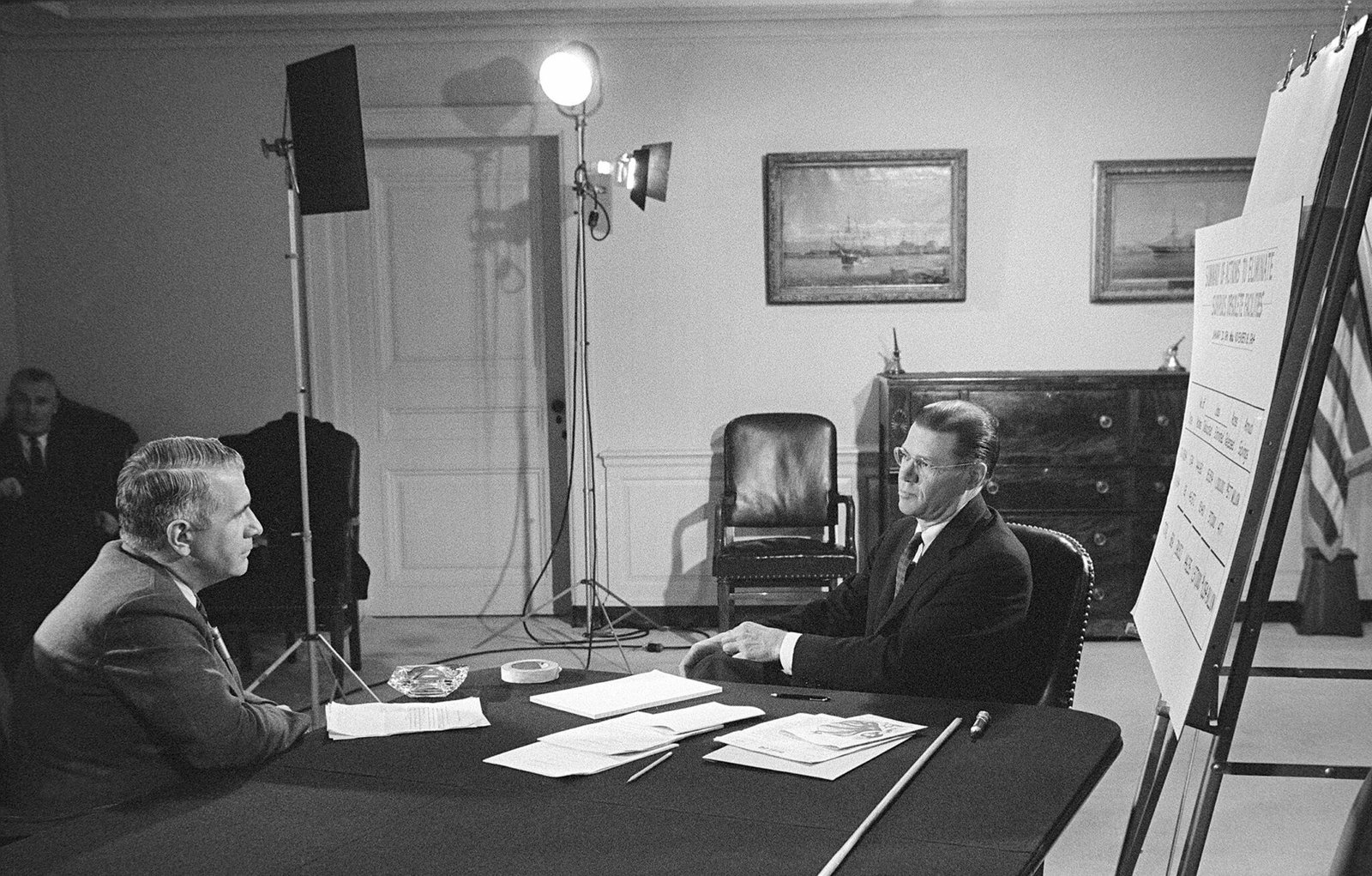October 6, 2025 – 11:34 AM

I will stipulate at the outset that I do not know how to reverse the long trend toward distrust in traditional American news sources. There’s probably a solution out there, likely something involving increased engagement in communications formats where people spend more time and less money. I’m pretty confident, though, that the answer is not taking established media institutions and attempting to realign them to meet the tastes of Americans who are actively hostile to media institutions.
When we talk about distrust in the media, we are usually (though not always) talking centrally about distrust among Republicans. In Pew Research Center’s June analysis of trust in news sources, Democrats expressed more trust than distrust in 23 of the 30 sources identified. Republicans expressed more trust than distrust in only eight. Among Democrats, there were 10 sources of news that were trusted by 30 percentage-point more respondents than distrusted them. Among Republicans, only one source hit that mark: Fox News.

You’ll notice that I’ve highlighted CBS News and The Washington Post on that chart. These are both news sources that fall into the traditional/institutional media bucket and both sources that have attempted or are attempting to remedy the decline in trust by appealing more explicitly to “all Americans” — meaning, obviously, more Republicans.
CBS’s shift is driven by its new owner, David Ellison — the son of megabillionaire and Donald Trump ally Larry Ellison. The Post’s, to which I can attest firsthand, is driven by the shifting approach of its owner, megabillionaire Jeff Bezos. In each case, net trust among Republicans dipped from net-positive or neutral in 2014 to negative by 2025 (as measured at both points by Pew).

The Post has seen an uptick in net trust among Republicans since 2019, a change that one might be inclined to attribute to Bezos’s accommodation of Trump and his base. But Pew notes that Republican trust in news sources surged upward since last year, a change “which has coincided with President Donald Trump’s return to the White House.” More importantly, Republican trust in the New York Times has also shifted upward since 2019, to about the same extent that trust in The Post increased. In other words, there’s no reason to think that The Post’s improvement is a function of Bezos’s public moves to appease Trump, like spiking the paper’s endorsement of Kamala Harris. And, in fact, Republicans are still more likely to distrust the paper than to trust it, by a wide margin.
Ellison has argued that the changes he’s advocating at CBS News, including the installation of Bari Weiss as editor-in-chief of the network’s news side, is an effort to “appeal to the 70 percent of Americans who define themselves as center-left or center-right,” as the Times reports. This is familiar framing for those who want to frame distrust in the media as being a function of its unfair coverage, arguing that the media is out of touch with mainstream America. For what it’s worth, analysis from the General Social Survey shows that only about a third of Americans are both mostly moderate and mostly independent. The remaining two-thirds are more partisan, more ideological, or both.

“We want to be in the truth business, we want to be in the fact business,” Ellison said earlier this year. But, of course, CBS and The Post have long been in the fact business and the truth business. The problem is that the fact and truth businesses are both suffering economic headwinds driven by the bullshit and rhetoric businesses. The current administration is hostile to facts that conflict with the president’s claims and is both leveraging and driving his base’s distrust in any outlet that’s actually in the business of generating facts.
What we can assume Ellison is really saying, of course, is that he wants to be in the business of generating the sorts of facts that won’t stir the ire of the president and his supporters. Maybe this will be good for the outlet’s bottom line — though that seems unlikely. Trump’s politics are rooted in the idea that his and his base’s worldview is rejected and mocked by traditional institutions including outlets like CBS and The Post. Each will be on a very short leash as it tries to appeal to those Americans, with coverage scrutinized endlessly for any perception of hostility to the president. It is an impossible standard to meet if one wants to be in the “fact business.”
Cynics will note that the Ellisons and Bezos are in other, non-fact businesses, too — ones that depend on the largesse of the federal government and therefore, in this moment, the approval of the president. Perhaps, then, the effort to publicly rescope the work of these institutions built to hold power to account is aimed less at some theoretical 70 percent of Americans than at one American in particular.
Photo: Harry Reasoner, CBS-TV, interviews Secretary of Defense Robert S. McNamara in 1964. (National Archives)


Leave a Reply